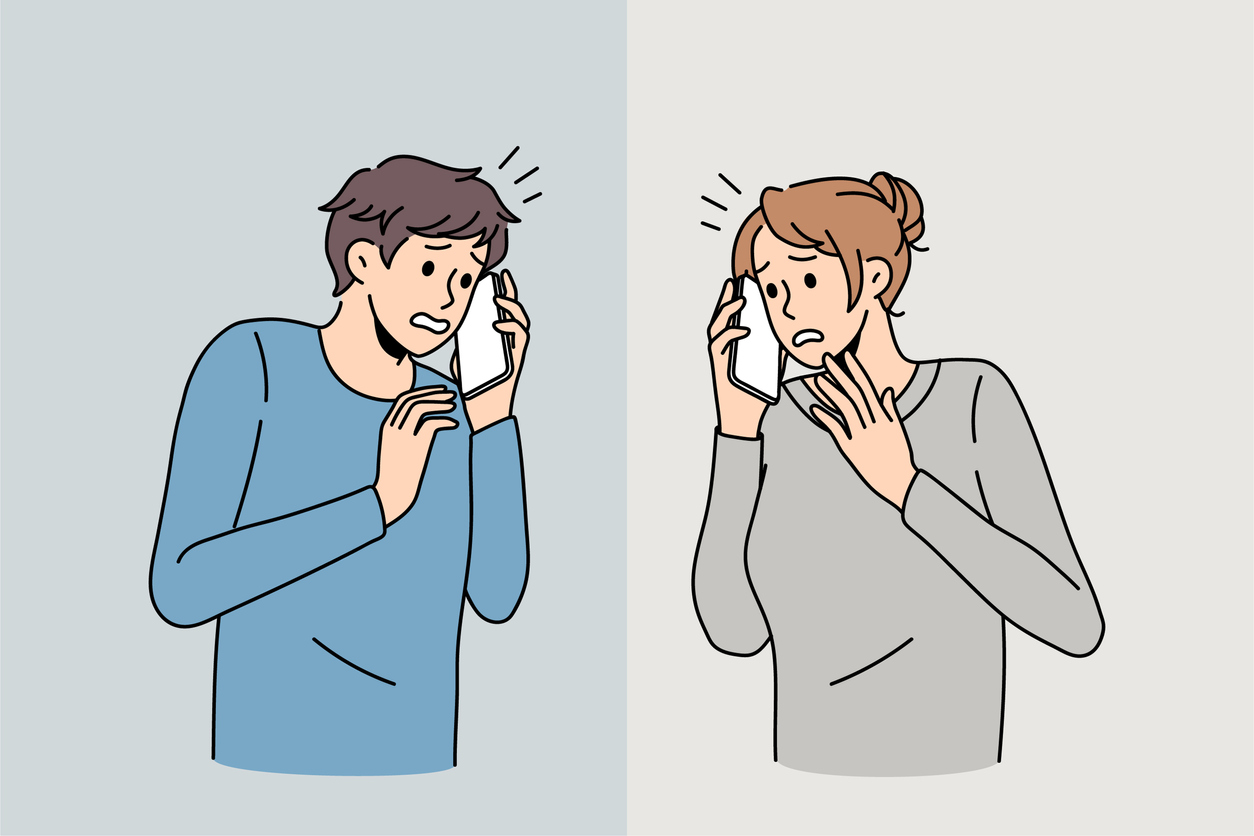
Phone Scams: The Top 10 to Avoid
Phone scams are becoming increasingly common, and it’s important to be aware of the various types and how to protect yourself. There are many different scams out there, so here are the top 10 phone scams to be aware of and avoid
What Are Phone Scams?
Phone scams are fraudulent telephone calls or messages intended to take advantage of unsuspecting victims. Scammers often use psychological manipulation to get the victim to take certain actions. They can also use technology to hide their identity and location to make it harder to trace them.
Most phone scams involve some type of financial gain, whether it’s getting the victim to send money, hand over personal information, or buy a product or service they don’t need. It’s important to be aware of the various types of phone scams out there and how to protect yourself.
Scam #1 – Fake Charities
Charity scams are unfortunately common, and they often involve callers who claim to be from a reputable charity organization, asking for donations over the phone. These calls can be especially convincing, as they often play on people’s desire to do good and help those in need.
In some cases, the caller may use high-pressure tactics, such as emphasizing that the charity is in urgent need of funds or that the donation will be tax-deductible. They may also ask for personal information, such as a social security number or credit card number, in order to process the donation.
However, legitimate charities will never ask for money over the phone, and they will not pressure donors to give immediately or provide personal information. If you are interested in donating to a charity, it’s best to do so directly through the charity’s official website or by sending a check in the mail.
Scam #2 – Fake Government Agencies
It has come to our attention that a common form of phone fraud involves callers impersonating officials from the Internal Revenue Service (IRS) or other government agencies. The scam typically involves the caller demanding payment for unpaid taxes or fees and threatening legal action if the payment is not made immediately.
It is important to note that the IRS will never call and demand payment over the phone. Instead, they will always send a written notice by mail if there are any issues with a taxpayer’s account. The IRS will never threaten to bring in local police or other law enforcement agencies to arrest a taxpayer for not paying a tax bill. The agency will also never demand payment via wire transfer, prepaid debit card or gift card.
Taxpayers should be aware that these types of phone calls are not legitimate and are designed to defraud individuals of their hard-earned money. Scammers often use scare tactics and attempt to create a sense of urgency to pressure individuals into making a payment.
Scam #3 – You’ve Won a Prize
In this type of scam, a caller will claim that the victim has won a prize and ask for personal information or payment in order to claim it. Be wary of calls like this, as legitimate companies will never ask for payment in order to claim a prize.
Scam #4 – You Owe Money
It is important to be aware that there are phone scams that involve callers falsely claiming that the victim owes money and threatening legal action if the payment is not made immediately. These types of scams can cause great distress and anxiety for the victim, who may feel pressured to make a payment to avoid any potential legal consequences.
It is important to remember that legitimate creditors, such as banks or credit card companies, will never demand payment over the phone. If there are any issues with a customer’s account, the creditor will typically send a written notice via mail or email outlining the issue and any necessary steps to resolve it. In addition, creditors are required by law to follow certain procedures when attempting to collect a debt, including providing written notice of the debt and the right to dispute it.
If you receive a phone call from someone claiming that you owe money and threatening legal action, it is important to take caution and not provide any personal or financial information. Instead, ask for the caller’s name and the name of the company or agency they represent, and request that they send written notice of the alleged debt.
Scam #5 – Robocalls
Robocalls are pre-recorded messages that are delivered by an automated calling system. They are often used for telemarketing purposes, with the intention of promoting products or services to a large number of people at once. These calls are usually made to random phone numbers, and the recipients may not have given their consent to be contacted.
Scam #6 – Free Offers
This scam involves callers offering ‘free’ products or services in exchange for payment or personal information. Be aware that these offers are usually too good to be true and should be avoided.
Scam #7 – Investment Opportunities
Investment scams often involve phone calls or unsolicited emails from individuals or companies claiming to offer high returns with little or no risk. One common type of investment scam involves callers who offer “guaranteed” returns on investments.
In this type of scam, the caller may claim to be a financial advisor or investment professional, offering an investment opportunity that is “too good to pass up.” They may use high-pressure tactics, such as emphasizing that the offer is only available for a limited time, or that other investors are already taking advantage of the opportunity.
The problem with these types of offers is that they are often too good to be true. High returns with little or no risk are typically not possible in legitimate investment opportunities. In many cases, the investment itself may not even exist, and the caller is simply attempting to scam the recipient out of their money.
Scam #8 – Fake Insurance Policies
One common type of scam that targets consumers over the phone is the offer of “discounted” or “free” insurance policies. In these scams, the caller may claim to be from a reputable insurance company, offering a policy at a significantly reduced rate or for free.
The caller will often use high-pressure tactics, such as emphasizing that the offer is only available for a limited time, or that the recipient has been specifically selected for the offer. They may also ask for personal information, such as a social security number or credit card number, in order to process the policy.
However, real insurance companies will never offer discounts or free policies over the phone in exchange for payment or personal information. Legitimate insurance companies may offer discounts to customers who meet certain criteria, such as safe driving records or multiple policies with the same company, but these offers will typically be made in writing or through the company’s official website.
Scam #9 – Fake Tech Support
Tech support scams are a common form of phone fraud that involves callers impersonating legitimate tech support companies or computer repair technicians. These scammers often claim that they have detected a problem with the victim’s computer, and offer to help fix the issue remotely. They may also use scare tactics, such as telling the victim that their computer is infected with a virus or that their personal information has been compromised.
Once the caller has gained the victim’s trust, they may ask for payment or personal information in order to “fix” the problem. This can involve asking for credit card information or asking the victim to install remote access software that allows the scammer to take control of the victim’s computer.
It’s important to remember that legitimate tech support companies will never ask for payment or personal information over the phone. If you are having computer problems, it’s best to seek help from a reputable computer repair technician or tech support company that you have researched and chosen to work with.
Scam #10 – You’re in Trouble
In this type of scam, callers will pretend to be from a law enforcement agency and claim that the victim is in trouble. This is a common scam, so be aware that the police will never call and demand payment or personal information over the phone.
How to Protect Yourself
The most important thing to remember is that if something sounds too good to be true, it probably is. If you receive a suspicious phone call, hang up immediately and do not give out any personal information. It’s also a good idea to register your number with the Do Not Call Registry and to be aware of the various types of phone scams out there.
Phone scams are becoming increasingly common and it’s important to be aware of the various types and how to protect yourself. By being aware of the top 10 phone scams to avoid, you can take steps to protect yourself and avoid becoming the victim of a scam.






